It is unprofitable for Tatarstan entrepreneurs to build or rent new production facilities
The Association of Small and Medium-sized Enterprises of the Republic of Tatarstan has discussed plans for the development of production facilities
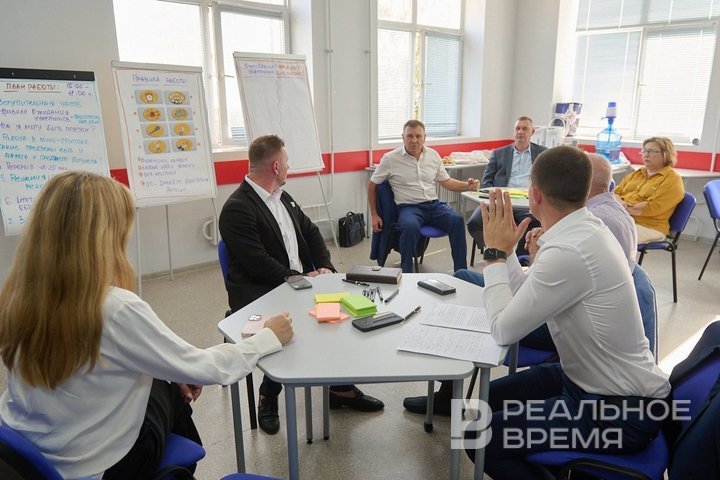
“It is more expensive to rent production and warehouse areas near Kazan than commercial real estate in the capital itself — 800-1000 rubles per square metre!” the participants of the round table discussion, organised by the Association of Small and Medium-sized Businesses of the Republic of Tatarstan, complained. Tatarstan entrepreneurs have faced with a serious shortage of available production areas, and it is extremely expensive and almost unprofitable to build their own facilities, taking into account the high cost of borrowed capital at 26-27% per annum. The businesses hope for state support and have prepared a list of proposals that they will address to the authorities. But most of the initiatives are feasible only at the federal level. For more information about what hinders the development of own production, and options for solving the problem, according to representatives of SMEs, see the material of Realnoe Vremya.
Good moment for rebuilding
Rail Gataullin, the owner of Temle PLC, Vysokogorsky district, was the first to take the floor and stressed that the state primarily supports large businesses, although small and medium-sized manufacturing enterprises are an important component of the economy. He noted:
“We know our problems, but we should also offer solutions to these problems. With the help of the Public Chamber of Tatarstan and the Committee of Small and Medium-Sized Businesses, we will be able to raise these issues, involve competent ministries and state bodies in their solution, and bring them to the federal level.
In the current geopolitical situation, according to him, Russian businesses are too dependent on imports in terms of raw materials and technology. Many domestic enterprises do not have a full production cycle — in fact, we are talking about assembly.
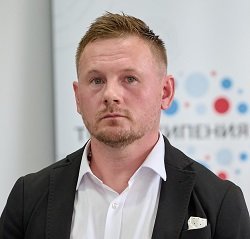
“When will I recoup it?"
At the round table discussion, the participants repeatedly stressed that they defend the interests of businesses that are engaged in the actual production of goods, machines and other things. It was suggested more than once that such production, as opposed to entrepreneurship based on the buy-sell principle, creates jobs for highly qualified workers, a profession in demand and prospects for self-development in the future.
The chairman of the board of the Association, Farid Safin, whose enterprise in Kazan, Vash Byt — Mebel PLC, which specialises in furniture wholesale, stated one of the acute problems of such a business.
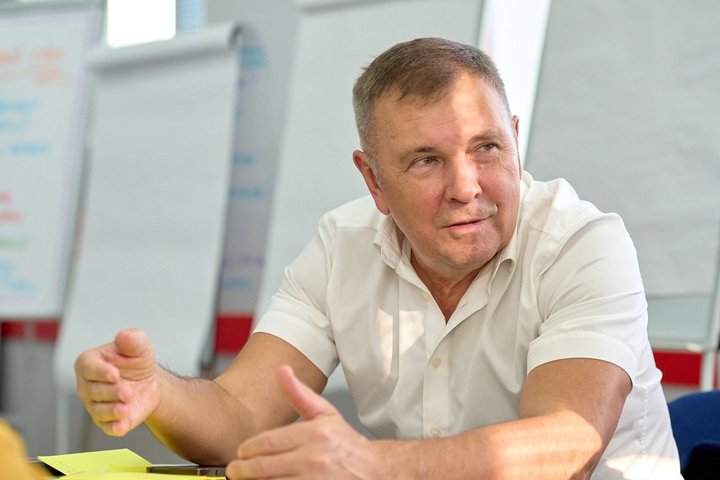
“It is more expensive to rent production and warehouse areas near Kazan — in Zelenodolsk, Laishevsky, Vysokogorsky districts than to rent commercial real estate in Kazan itself — it costs 800-1000 rubles per square metre!”
It is also difficult for manufacturers to build their facilities, he added: the process of obtaining the necessary documentation, approvals and permits takes from six months to three years, and then the finished facility waits for connection to the power grid, gas supply — and the do not produce products. Meanwhile, the credit “counter” is ticking. Safin gave an example from his own practice: having invested his own 80 million rubles and 5 million received from the Entrepreneurship Support Fund in the construction of new facilities, he borrowed the remaining amount at 25% per annum and now wonders: “At this rate, when will I recoup it?"
The businessman recalled the high cost of borrowed capital — banks offer loans to entrepreneurs at 26-27% per annum, which makes development just impossible for many:
“It is important for us not to lose our entrepreneurs, to make sure that they do not stop working in such conditions!”
“We produce health”
“I would really like to see the attitude towards the medical business reconsidered and treated as a social one!” Olga Konovalova, the director and co-founder of the private Kazan clinic Avicenna — Endocrinology, expressed her wish for the necessary support. “We have a medical clinic, we don't seem to produce anything, but we produce health. And when I asked the organisers of this round table discussion if I could participate in it, they said yes.”
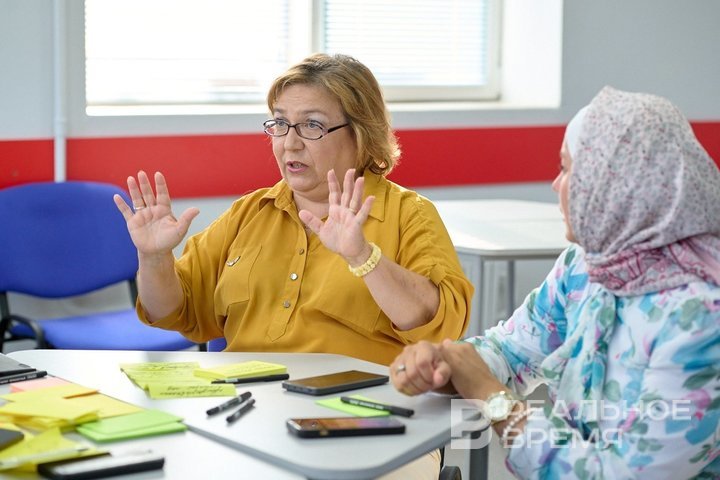
The entrepreneur spoke about the difficulties her company faces when trying to obtain grants, as well as the disrespect and indifference of those who make decisions whether to grant or refuse:
“I was very uncomfortable when a 20-year-old girl in one of the departments did not even invite me to sit down and immediately said, without explaining anything, “No, you are not suitable for us”.
She spoke about another problem — the low quality of education of specialists who come to work for small and medium-sized enterprises a little later, describing it with the word “disaster”.
A short “shelf”
Together, the participants in the discussion formed a rather long list of problems, which, in particular, included:
- a limited list of measures to support manufacturers, which apply not to all types of production, and the presence of excessive red tape and too many intermediaries in obtaining them, although it is easy to assess an enterprise worthy of support by stability, the duration of its work in the market and the amount of taxes paid to it;
- the shelf is too “short” for local manufacturers from federal retailers, who are reluctant to take products and goods from them;
- a shortage of domestic components for production, combined with the fact that it is unprofitable to purchase such components from Russian manufacturers, since they are more expensive than imported ones;
- the lack of tax benefits and preferences for companies that objectively cannot move production to industrial parks, PSEDA and SEZ — the move will be too expensive, and the workforce will need to be recruited again;
- lack of well-trained personnel, including management;
- lack of production sites for rent at an affordable price;
- the complexity of the procedure for recognising an enterprise as a social business;
- high business loan rates and the inability to reimburse part of the costs due to taxes;
- red tape during the construction and commissioning of new production facilities.
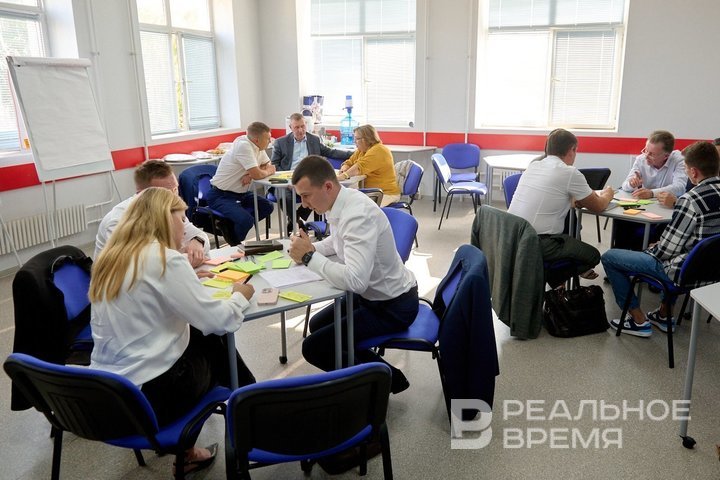
Real and unreal
There were also such proposals that the participants themselves criticised. For example, the proposal to subsidise the production of local components was rejected by Ilnar Khaibullin, a representative of Pruzhinny Zavod PC PLC, who reasonably noted that if the manufacturer was given the opportunity to relieve himself of part of the costs, he would immediately try to increase the cost of production in order to get more money, and this was no longer a development.
The idea of imposing restrictive measures on the use of imported components in Russian factories was also dismissed as unrealistic and harmful.
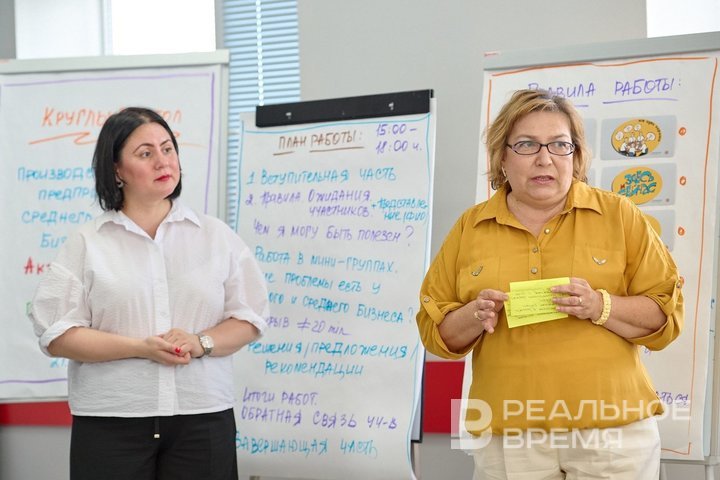
The participants of the discussion distributed the remaining wishes by sectors according to a simple principle — which branch of government should be contacted to solve the problem.
It so happened that the bulk of their proposals were addressed to the federal authorities: on the establishment of tax and other benefits, business regulation, preferences, education and training. At the regional level, in their opinion, the rules of the game should be established for the provision of grants and “local” tax benefits. But entrepreneurs have a very important question for the municipal authorities today — about resolving the problem of renting premises for production.